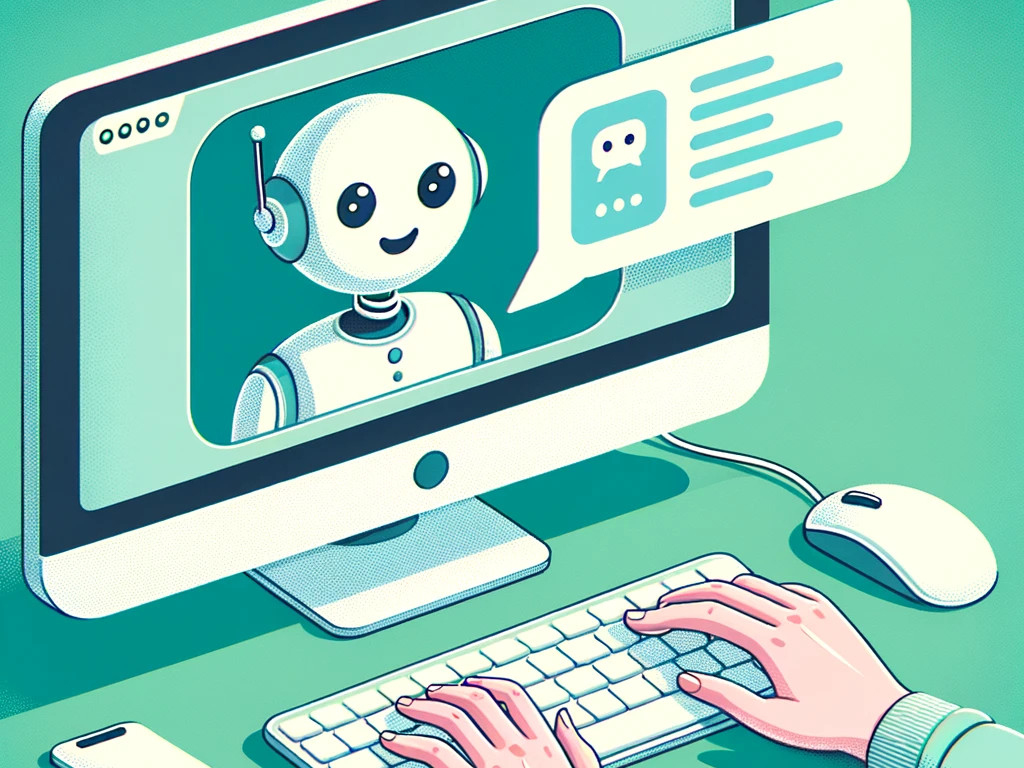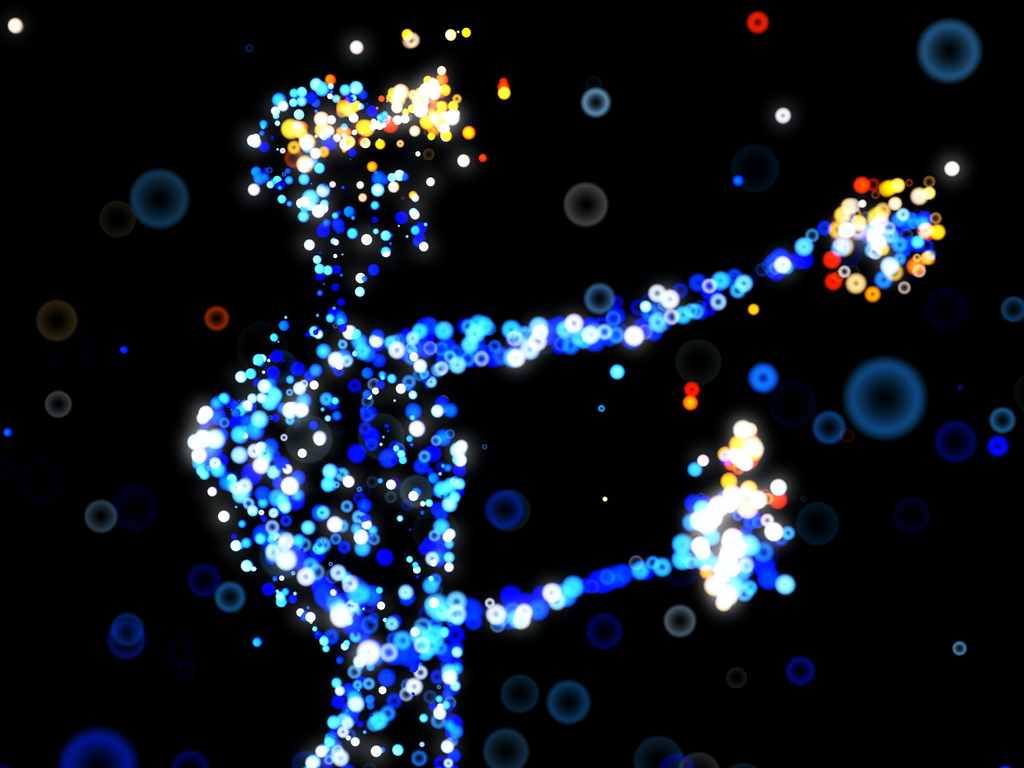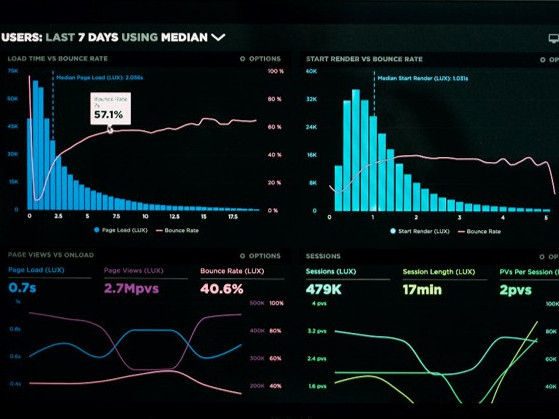The human-centered systems lab (h-lab) headed by Prof. Dr. Alexander Maedche (Research Group “Information Systems I") focuses in research, education, and innovation on designing human-centered systems for better work and life.
Our mission is to create impactful knowledge for designing human-centered systems for human productivity and well-being through relevant and rigor scientific research. We leverage artificial intelligence (AI) and biosignal sensor technologies in combination with a human-in-the-loop paradigm to continuously involve humans in the design process. We follow a socio-technical research approach for increasing human productivity and well-being through human-centered systems.
We contribute to the fields of human-computer interaction (HCI) (Mensch-Computer Interaktion) and information systems (IS) (Wirtschaftsinformatik). We believe that delivering cutting-edge knowledge and inspiring education, as well as an ongoing dialog with the public need to go hand in hand to maximize the impact of our work in organizations and society.
Our current research topics are:
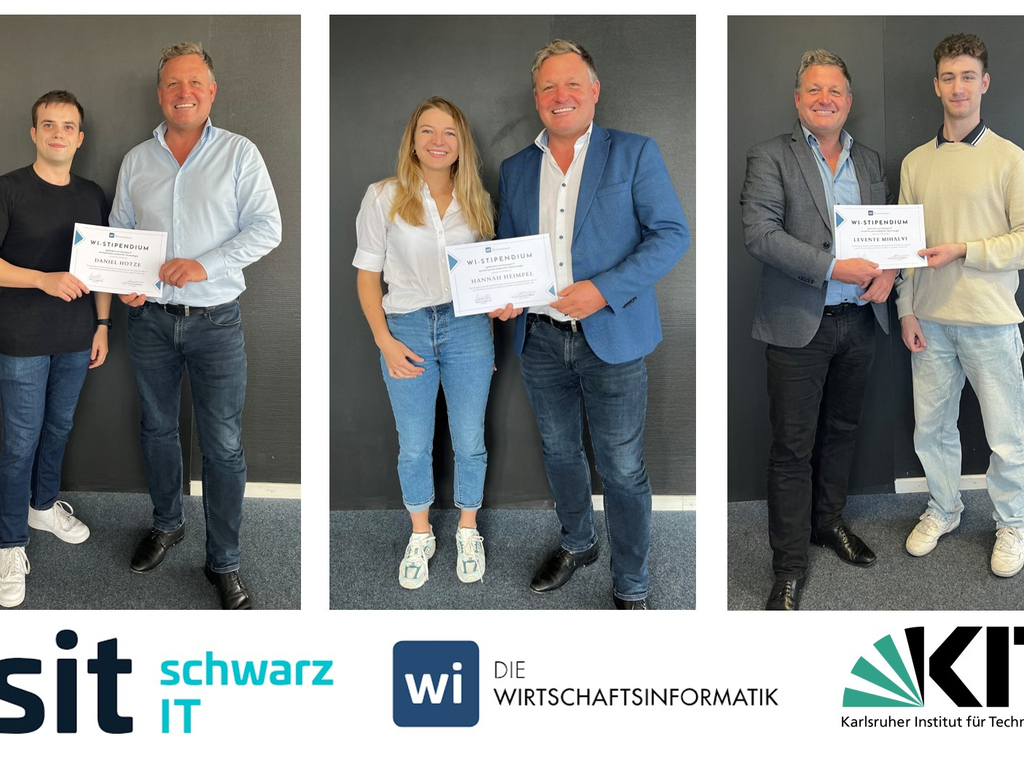
The information system students Daniel Hotze, Hannah Heimpel, Levente Mihalyi, and received an IS scholarship funded by Schwarz IT. The scholarship is awarded by the non-profit association " Die Wirtschaftsinformatik e.V. " and serves to promote young people in the field of IS. For the 2024/25 period, three IS scholarships were funded by Schwarz IT KG at Karlsruhe Institute of Technology (KIT) supporting students of the Information Systems program .
More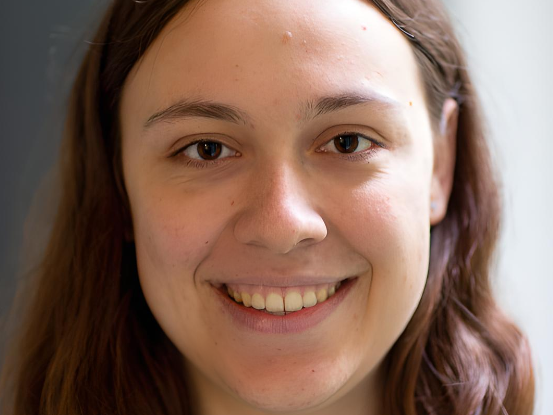
We welcome Chiara Krisam as a new team member and doctoral student researcher at the human-centered systems lab of Prof. Mädche at KIT. Chiara will join the interdisciplinary PhD program provided by the DFG-funded graduate school KD2School.
Chiara holds a B.Sc. and M.Sc. degree in Information Systems from the Karlsruhe Institute of Technology (KIT) and wrote her master's thesis on cognitive load-adaptive microbreak interventions in video meeting systems.
More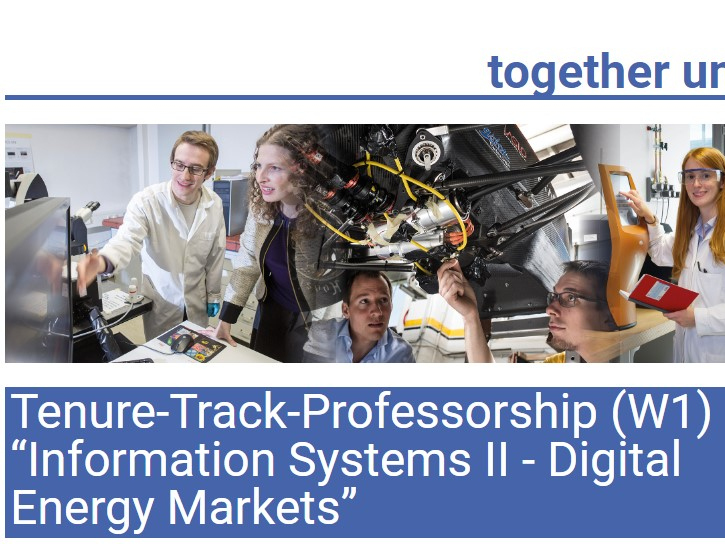
Tenure-Track-Professorship (W1) “Information Systems II - Digital Energy Markets” The Tenure-Track-Professorship focuses on the socio-technical understanding and designing of digital energy markets using empirical and design-oriented research methods. [...]information is available here: https://www.pse.kit.edu/english/karriere/joboffer.php?id=164445
More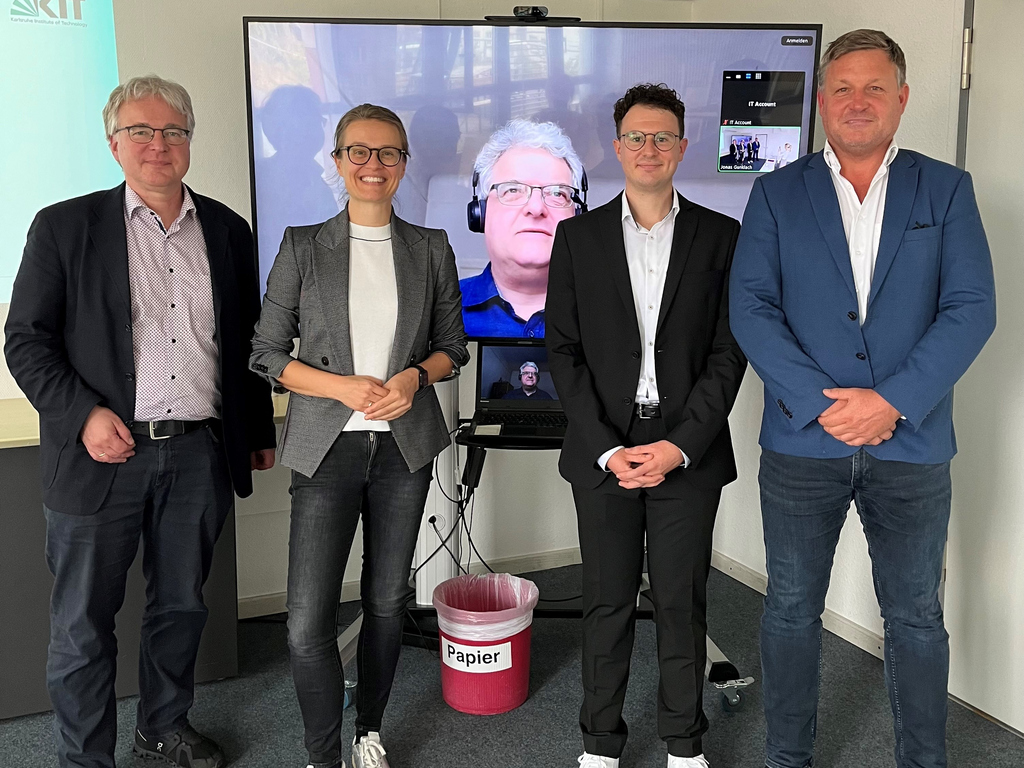
Successful PhD defense by Jonas Gunklach Jonas Gunklach successfully defended his PhD thesis titled “Guidance for the Effective Use of Business Intelligence and Analytics Systems“ on September 26th 2024.
More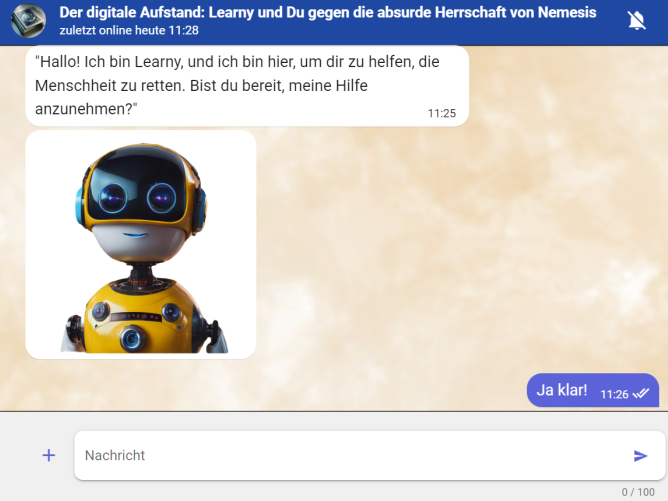
Prompt engineering is about providing instructions that can be processed by a generative AI model. The WeLearnAI tutor provides a simple and interactive way to help people without the relevant technical background. The world of prompting is introduced not only in an educational but also entertaining way in a playful manner.
More
Sandra holds a Master of Science degree in Applied Research in Engineering Sciences and a Bachelor of Science degree in Media Informatics from Nuremberg Institute of Technology. Sandra has been involved at the Nuremberg Campus of Technology for the past two years, including serving as a student assistant. In her project work, she has focused on identifying user requirements for user-centered design in material flow within industrial environments, as well as designing usability tests for bidirectional communication between humans and collaborative robots.
More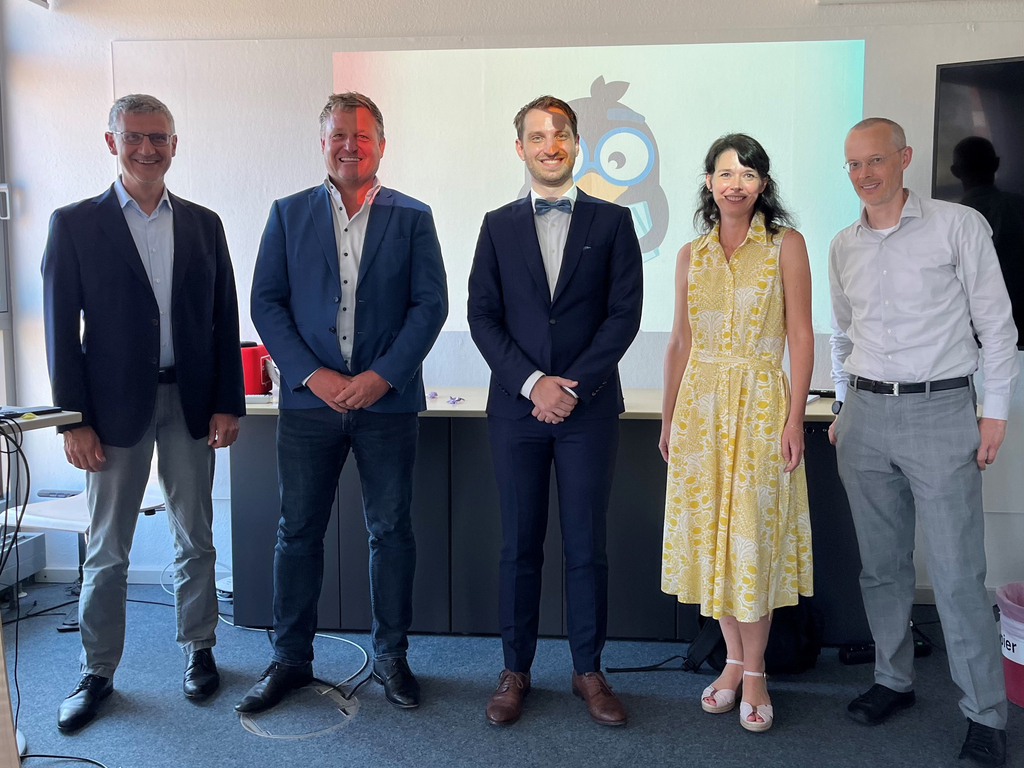
Successful PhD defense by Sven Scheu Sven Scheu successfully defended his PhD thesis titled “Designing Mobile Assistants for Students’ Self-Regulated Learning and Mental Health“ on August 28th 2024.
More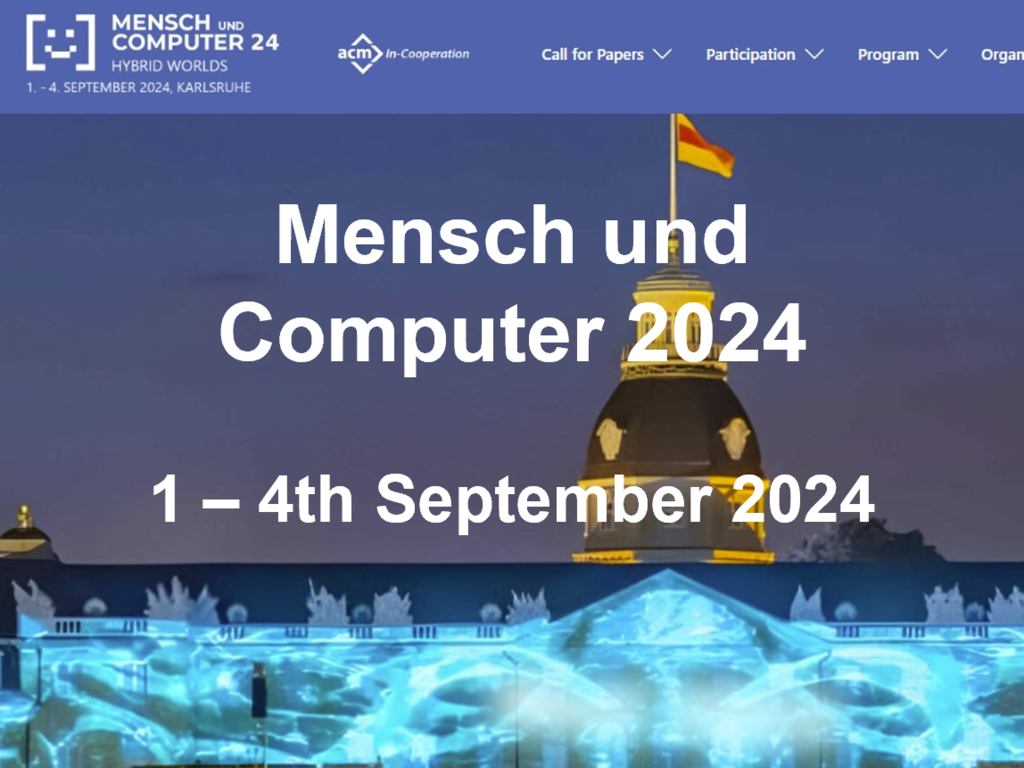
The “Mensch und Computer 2024” conference will take place in Karlsruhe from September 1st-4th 2024 focusing on the conference theme of “hybrid worlds”. MuC is Europes largest conference on human-computer interaction and offers participants from science and industry a platform for contributions and discussions on innovative forms of interaction between people and digital technology. The UIG symposium program is online on https://www.digitalzentrum-fokus-mensch.de/events/uig-tagung-2024
More_cut_rdax_1024x768_98p.jpg)
Digital networking platforms enable an increase in transparency and openness by intensifying the dialogue and networking between people in business, science and society. In business, effective networking with customers in the development and optimization of products and services is becoming increasingly important. In science, the "Open Science" paradigm with practices such as Citizen Science aims to increase the relevance and acceptance of research through interaction with citizens. In society, the pursuit of participatory decision-making processes in politics is becoming increasingly important.
More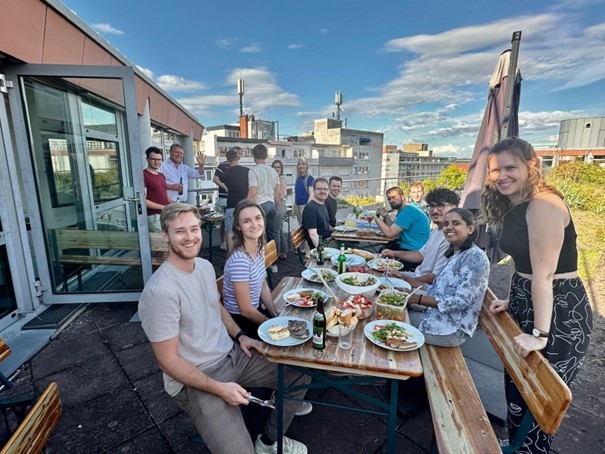
Researchers Get-Together Recently, the two IISM chairs, led by Prof. Dr. Weinhardt (Information and Market Engineering) and Prof. Dr. Mädche (Human-Centered Systems Lab), hosted a delightful barbecue on our rooftop terrace. With refreshing drinks in hand, colleagues enjoyed a relaxed evening where they exchanged ideas, discussed research, and connected on a more personal level, fostering a sense of community beyond our daily work environment.
More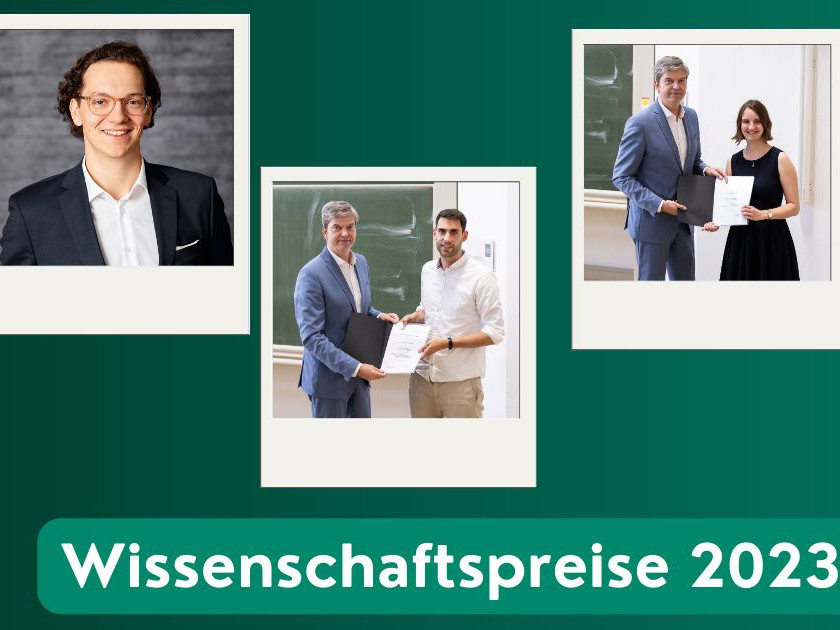
As part of the Dialogue Day of the KIT-Department of Economics and Management on July 17th 2024, Dr. Merlin Knäble, a former member of the human-centered systems lab, received the science prize 2023 in informatics of the KIT-Department Economics and Management for his dissertation titled "Overcoming Barriers with Self-Determination: Interactive Labeling Systems in Accessibility". With his dissertation he contributes to the fields of human-computer interaction and information systems by providing a comprehensive understanding of the design of interactive labeling systems, the role of self-determination, and their application in accessibility.
More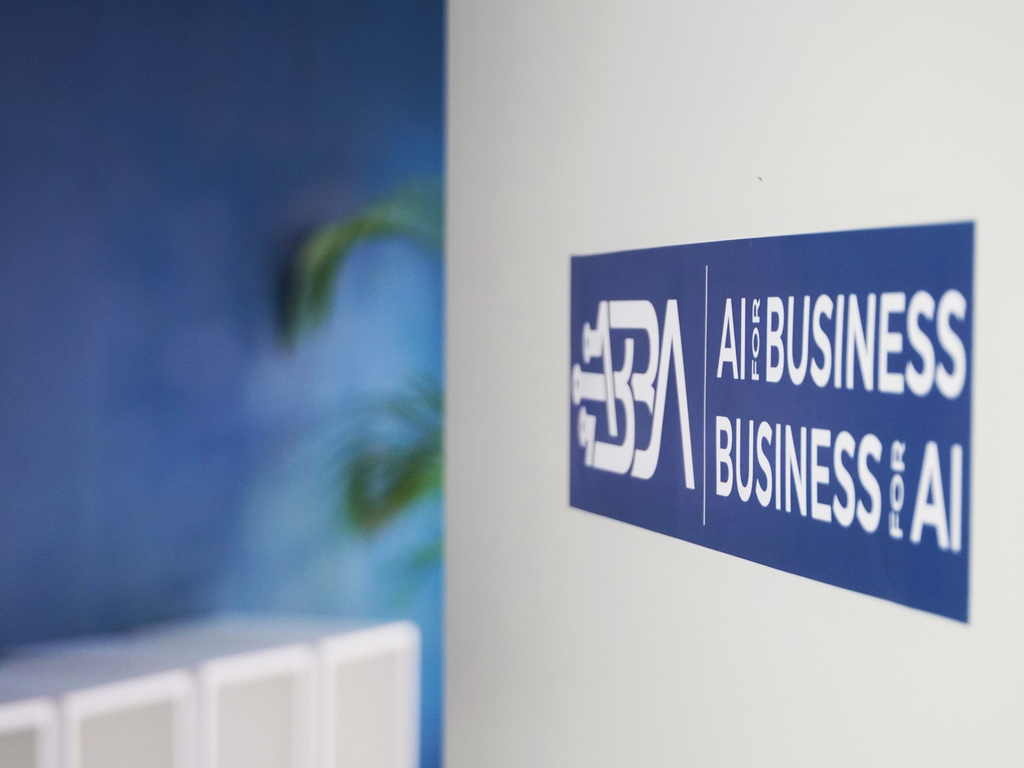
From September 23rd-25th, the research groups of Prof. Mädche and Prof. Weinhardt invite for the ABBA Summer School Seminar at the KD²Lab. The summer school seminar is offered as part of the ABBA project. In this seminar, we give students the opportunity to leverage biosignal sensor and GenAI technologies for designing advanced biosignal-adaptive GenAI systems. This three-day program is designed for both bachelor’s and master's students.
More

